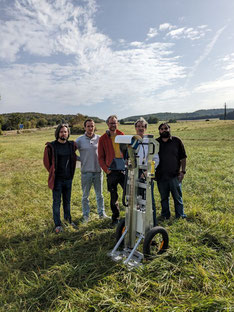Development of a push down root imaging probe - PHENET project

Europe must swiftly discover routes to transition agroecosystems towards agroecology, fostering food security, resilience to climate change, biodiversity, and the restoration of soil carbon stocks. To achieve this goal, the European Research Infrastructures (RI) focusing on plant phenotyping (EMPHASIS), ecosystems experimentation (AnaEE), long-term observation (eLTER), and data management and bioinformatics (ELIXIR) are collaborating in the EU-funded initiative known as PHENET.
Together with BOKU Vienna and S4 mobile laboratories partners, we had a successful kick-off meeting to develop a novel root imaging probe within the PHENET project, which is able to detect roots (root length density) while being pushed into the soil. This novel root phenotyping tool aims to bridge the current methodological gap between destructive soil coring (and root washing) and frequent root dynamics observations with minirhizotron cameras - providing a new and easy to use tool for breeders and managers to incorporate root density and depth distribution in their considerations (i.e. resource uptake by genotypes, to irrigation percolation to depth). At a later stage of development, the root imaging probe will work in conjunction with a novel soil spectrometry probe developed by S4, the 'Subterra Green' - making field measurements of soil and roots affordable and ubiquitous. Vienna Scientific Instruments is pleased to play a part in the significant PHENET EU project.
